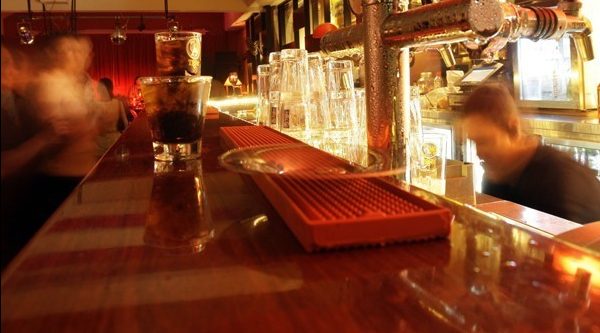

A popular bar in the Melbourne CBD will be forced to defend itself before a tribunal, after a law student who was refused entry to the venue in July filed a lawsuit claiming discrimination.
In a claim lodged in the Victorian Civil and Administrative Tribunal, Joshua Findley claims he was refused entry to Curtin House on Swanston Street, late one evening in July while out with three friends, two men and a woman, because there were “too many guys” in the group.
Curtin House is home to a number of bars, including Cookie and the Curtin House Rooftop bar.
“There is no doubt that had we all been female, we would have been let in,” Findley said in his claim, according to the Herald Sun.
“My friends and I were planning on a good night at Cookie. Due to discrimination this was not allowed to happen.”
Findley alleges a security guard told the group they would not be allowed to enter the venue because the group was made up of mostly men.
“These are bars … (that) have certain policies that ensure there are more women in the venue than men,” Findley said in the claim.
“Most would create another reason for refusal… in this instance, the bouncer explicitly said there were too many guys in our group.”
The Herald Sun reports Findley’s claim has been lodged against Curtin House Rooftop, the business that occupies two of the levels in Curtin House.
However, two other venues in the building, as well as the company that manages the building’s security, could also be added to the action.
Curtin House Rooftop has denied Findley and his friends were refused entry to the venue on the basis of their gender, saying the group was prevented from entering the venue because they were intoxicated.
“I believe there may be a misunderstanding,” said Gran Gould, the manager of the Rooftop bar, in an email to Findley.
“Your group were not denied entry based on gender. I have viewed the CCTV footage and a number of male patrons do indeed gain entry. It’s evident males were not being subject to any alleged discrimination.”
However, Findley and two of the other members of the group dispute the claim that they were intoxicated and have lodged affidavits saying this with the tribunal.
A conference to review CCTV footage of the incident has been scheduled for November 12.
Emma Jervis, principal at LegalVision, told SmartCompany it is unlawful to discriminate on the grounds of sex in the provision of goods and services and consumers are protected under both state and federal laws.
“In determining if the club has indeed been discriminatory in breach of the relevant laws, it will be necessary to examine the conduct and determine, firstly, if it fits the statutory definition of ‘discrimination’ and secondly, whether there are any valid defences or exceptions available,” Jervis says.
Jervis says the tribunal will consider if the venue treated Findley less favourably then it would have a women, and secondly, if the business’ conduct is the normal practice of the club or “whether it was an inherent requirement of the club to have some sort of gender balance”.
“While the final outcome of the claim is questionable, it certainly raises issues for employers and service providers as to the practical steps they should take to avoid allegations of discrimination,” Jervis says.
“Here, knowledge is key. In order to recognise behaviour as potentially discriminatory, knowledge of what discrimination actually is, is essential.”
“Particularly when staff and contractors regularly engage with members of the public, it is wise for business owners to have in place policy documents – and a requirement they be read – so as to put in place proper processes for staff to follow,” she adds.
SmartCompany contacted Curtin House Rooftop and Cookie but did not receive a response prior to publication. SmartCompany was unable to contact Joshua Findley.


COMMENTS
SmartCompany is committed to hosting lively discussions. Help us keep the conversation useful, interesting and welcoming. We aim to publish comments quickly in the interest of promoting robust conversation, but we’re a small team and we deploy filters to protect against legal risk. Occasionally your comment may be held up while it is being reviewed, but we’re working as fast as we can to keep the conversation rolling.
The SmartCompany comment section is members-only content. Please subscribe to leave a comment.
The SmartCompany comment section is members-only content. Please login to leave a comment.